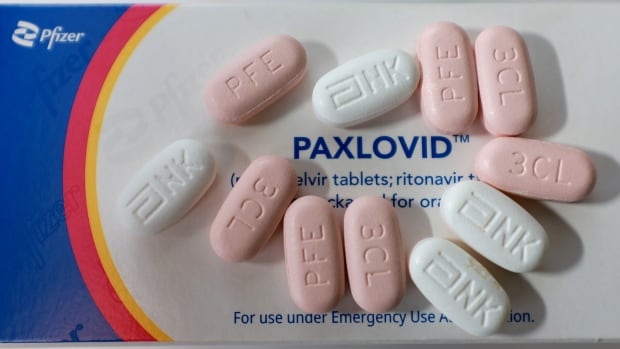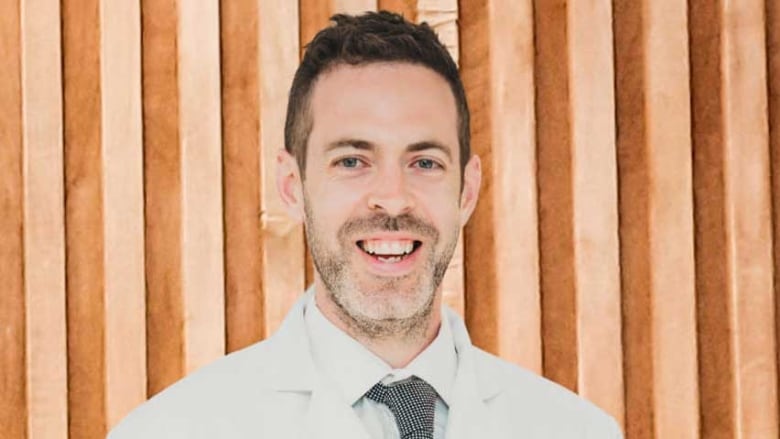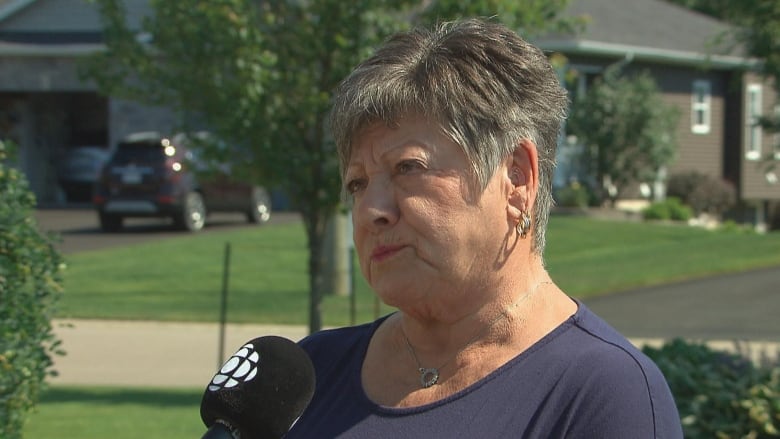
New Brunswick has taken steps to make Paxlovid more affordable for some people at higher risk of becoming severely ill or dying from COVID-19, now that the federal government has stopped supplying the anti-viral medication to provinces for free.
But the drug designed to reduce symptoms from an infection and shorten the period of illness remains out of reach for many, either because of the cost of about $1,400 for a five-day course, a lack of timely access, or reduced eligibility.
The province now covers Paxlovid for the treatment of mild to moderate COVID for adults who have a government-sponsored drug plan and are severely or moderately immunosuppressed, if they have a positive COVID-19 test and are within five days of symptom onset.
Their prescriber must fill out a special authorization form, which must be approved.
People with private insurance may or may not qualify for coverage, depending on what’s included in their policy.
Pricey for pharmacies to stock
Until the spring, Paxlovid was free for all New Brunswickers with Medicare, who met broader eligibility criteria, including seniors 80 or older and those in nursing homes.
Pharmacies used to have ready access to a steady supply of publicly funded Paxlovid, said Robbie Collins, pharmacist and co-owner of Millidgeville PharmaChoice in Saint John, but things are different.
“Part of the challenge with the way it is now is you … won’t really find too many [pharmacies], or any, that stock Paxlovid routinely,” Collins said.
Pharmacists would now have to pay the full cost upfront to stock the expensive drug, made by Pfizer, he said.
So “if no one comes to you that does meet this criteria, you’re going to be stuck eating that cost,” he said.

Although pharmacies can usually order Paxlovid and get it delivered the next business day, they could run into situations where that isn’t possible, Collins said.
He cited this Thanksgiving weekend as an example. If a pharmacy ordered the drug on Friday, the next business day isn’t until Tuesday.
To be effective, Paxlovid must be taken within five days of the start of symptoms.
Patients could miss window
The province tends to process special authorizations fairly quickly, said Collins, but “if it hits someone’s desk end of day, and there’s another pile of special authorizations there, I’m not really sure what you’re looking at time-period wise.”
Patients also have to test positive first, he noted, and tests can take time to access since the province stopped offering free rapid tests through its community-based distribution sites in June and has no plans to provide the at-home screening tests again, he said.
There’s a good chance patients are “going to fall out of that [five-day] window of being in the appropriate timeframe to use it.”
Delay unacceptable, advocate says
Cecile Cassista, executive director of the Coalition for Seniors and Nursing Home Residents’ Rights, also worries people won’t be able to meet the five-day criteria to qualify.
She was shocked to learn of the changes in coverage, which weren’t announced in New Brunswick, and saw seniors lose eligibility, including those 60 to 79 who live in long-term care or receive home care, and those who are from or who live in a First Nations community.
“We could be in a lot of trouble,” Cassista said. “I think you’re going to see an upward trend of more people getting sick, more people passing away.”

She calls the special authorization form an unacceptable added delay when people are sick, and plans to contact Deputy Minister of Health Eric Beaulieu.
“They need, as a Department of Health, to be much more proactive and they need to ensure that the pharmacists are going to have this medication in stock so that if somebody needs to go through the procedure that it’s available in due time,” she said.
“They have a responsibility to ensure people are protected.”
‘Vulnerable individuals’ covered, province says
Health Department spokesperson Katelin Dean said the federal government stopped providing Paxlovid at no cost to New Brunswickers who met the eligibility criteria in May.
“The Department of Health responded by ensuring that Paxlovid is covered under the NB Prescription Drug Program, to ensure that vulnerable individuals, such as those in the care of the Department of Social Development, and seniors, are covered for this medication,” Dean said in an email.
Paxlovid is also covered under the NB Drug Plan, the income-based prescription medication insurance available to uninsured New Brunswickers, she said.
Between January 2022 and March 31 this year, the Public Health Agency of Canada provided Paxlovid for free to provinces and territories, spokesperson Anna Maddison said.
“As we have moved past the emergency phase of the COVID-19 pandemic, PHAC no longer procures Paxlovid,” she said in an email.
“Provincial and territorial jurisdictions have assumed the primary procurement role to secure ongoing access to COVID-19 therapeutics, including Paxlovid.”
National guidance on coverage changed
In April, the expert committee for the Canadian Agency for Drugs and Technologies in Health, the body providing advice for the country’s publicly funded health-care systems, offered new guidance for how drug plans should cover the treatment.
It suggested Paxlovid should be reimbursed only for patients who are severely or moderately immunosuppressed, or those with moderate immunodeficiencies.
Some provinces continue to offer Paxlovid free of charge to anyone who meets their criteria.
In Manitoba, for example, Paxlovid is available to anyone who is prescribed the drug.
In Quebec, those with severe immunosuppression, or aged 60 or over or with at least one co-morbidity, such as diabetes or liver failure, can receive Paxlovid “at the pharmacy of their choice,” according to the province’s website.
The New Brunswick Health Department did not respond to a request for information about how many Paxlovid treatment courses were dispensed before the changes, or how many have been dispensed since.
Prescribed less often
But as of a year ago, about 8,200 of the 21,900 treatment courses obtained since January 2022 had been dispensed.
Michael Simon, a family doctor in Saint John, thinks Paxlovid is used “a lot less” now than during their peak of the pandemic, partly because of the narrowed eligibility.
Immunosuppressed patients with mild to moderate COVID symptoms would be “rare,” he said.
“Oftentimes they may require oxygen, which puts them in the severe category, and they have to be admitted to hospital, requiring more in-depth treatment.”
When he does prescribe Paxlovid for his patients, Simon said, he fills out the special authorization form and hopes for a response within 48 hours.
“You like to think that you know, whoever makes the decision in Fredericton will check off, Yes, it fills the qualifications or the guidelines, and they should get it and get reimbursed. But … there’s no guarantee for that.”
Calls for expedited authorization
Robbie Collins said he’s had no demand for Paxlovid at his pharmacy after the federal government stopped supplying it.
“Once they found out that it was, you know, a $1,400-plus charge, that was [the] end of conversation.”
He doesn’t know what to expect with the provincial changes and the anticipated fall COVID surge, but doubts any patients will want to risk fronting the $1,400, pending authorization.
Collins thinks there should be an expedited approval process for Paxlovid “at a bare minimum.” Ideally, he’d like to see a system where pharmacists could call provincial officials and get it approved immediately.”
“That would make things a lot easier I think,” for pharmacists and patients, he said.